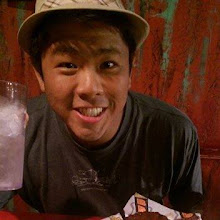2 Timothy 1:1-14
“…For I am mindful of the sincere faith within you, which
first dwelt in your grandmother Lois and your mother Eunice, and I am sure that
it is in you as well. For this I remind you to kindle afresh the gift of God
which is in you through the laying on of my hands…”
I am no better. I have no more. With
a bowl of plain yogurt with some raspberry jam thrown in for flavor, I sit in
disbelief on a leather couch in my hosts’ apartment in Lusaka, musing on the
stark contrast and striking familiarity between the life to which I woke this
day, and the life to which I woke one morning ago. It had been a strenuous yet
relaxed week in the village of Mumbwa. From the stories I had heard from the
team in the village of Chibombo, setbacks and trials are in no short supply
this month. However, the blessings of the week in a relatively primitive
existence far overwhelm the feelings of exhaustion I am experiencing this
morning.
Bishop Wise was born and raised in
the village. Without complaint or mere mention, Bishop Wise struggles with what
appears to be autism. Neither his stature nor his demeanor do justice to the
giant that he is in character and passion. By modern and developed-world
standards, he is fit for little work or success in the world. His education was
abruptly halted in the seventh year of primary school due to the death of his
father. Students in Zambia require sponsorship or funding to cover the costs of
attending class, and those who lack the financial resources have had no choice
but to withdraw. On behalf of his family, Bishop Wise resolved to leave the
classroom for the maize fields. His sister Lizzy was able to complete secondary
education.
 |
| Bishop Wise Chasamena from Mumbwa |
By eternal standards, Bishop Wise is
a major player for impacting his community. When ten gear-laden city dwellers
pulled into the church lot one week ago, Bishop was present and eager to greet
and assist his new companions. Despite the language barrier, Bishop Wise wasted
little time in getting acquainted with visitors like Dan, Aaron, and me. Sitting
under the thatched roof of the insaka
hut, Bishop Wise observed curiously as I attempted to portray the continents
through lines drawn in the dirt. While he did not understand the placement of
“St. Louis” somewhere in the middle of one poorly drawn triangle, he did
comprehend that these young men had lived dramatically different lives, and he
set his mind to living and learning with the two muzungus and the one with muzungu
skin but not face.
I recall that evening with the man the
community members call Bishop; the one Aaron called Bishop Wiseman. In my
heart, I harbored uncertainties about how effective the week would be. Life
moves much more slowly in the village, and locals approach little to nothing
with much urgency. At least, that is what I believed. In truth, many members of
the community, especially the church, were seeking to play their roles in the
grand tapestry of life. They just needed to know what their roles were and how
they could fulfill them.
The message of discipleship and
generations of faith came to life in the village. Full of reservations about
the execution of the training program, I sat stunned in the shade of the insaka as, one after another, men and
women were committing their hearts to a labor of love for their neighbors and
their families. The burden of transitioning to the village lifestyle and
serving alongside locals was lifted. Just as I had learned a life of
compassion, several locals were embracing the work of the Gospel of Jesus
Christ.
They were really no different from
me; they lacked nothing, from a certain perspective. They breathed like I
breathe. They ate like I eat, except for the emphasis on eating without
utensils. They walked like I walk, except farther and more frequently. They
biked like I bike, except with more skill and utility. They laughed like I
laugh. They loved like I love, except with more emphasis on the relationship
and less on the material. They learned like I learn, though effectually without
a formal education. Fond thoughts of friends, of family in the village of
Mumbwa cross my mind, and I pray hopefully that they would now make disciples,
as I have learned to make disciples, of their children and of their neighbors.
